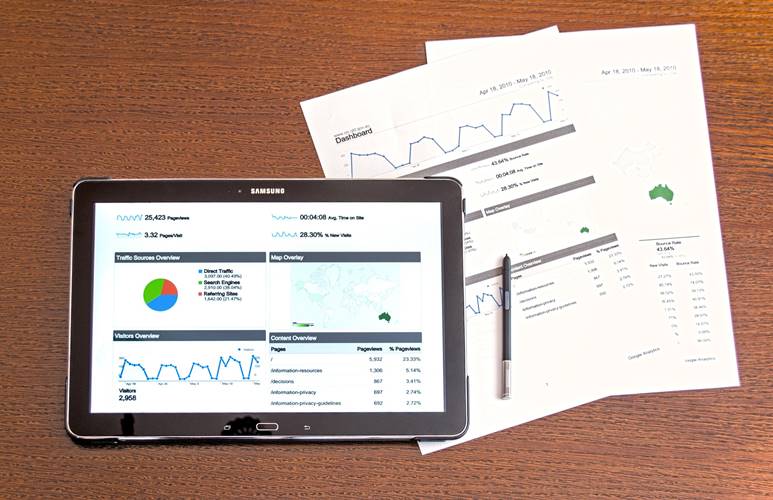
Yes, It’s possible! You can rank for SEO without backlinks by focusing on user intent, user experience, and last but not least, in-depth keyword research. While the data reveals that most websites won’t rank in competitive search without external links, individual pages can benefit from other SEO tactics.
Can You Rank in Google Without Links?
In short, you can rank in Google without links. The secret? Understand user intent, improve user experience and perform extensive keyword research.
It Is Not All About Links
Links are important. Search engines use them to grade the authority and trustworthiness. However, other methods can produce valuable results.
Backlinks are just one factor.
Brian Dean at Backlinko lists 200 ranking factors for Google. In his downloadable worksheet, Dean pulls together the factors that he believes have the most impact on your ranking. In that list, he prioritises elements that enhance content and user experience.
The Relationship Between External Links And Rankings
Understand how search engines crawl the web. Essentially, search engines check the links between websites. If two sites are trustworthy, they will benefit from that connection.
What the data says about links and Google rankings
According to Brian Dean at Backlinko, Google does favour healthy backlinks. Also, the number of domains linking to a page correlate with rankings more than any other factor. His analysis of 1 million Google search results generated a chart that supports this claim.
External links are almost always present for competitive searches
Moz discovered that every website ranking for competitive search phrases has external links. They also found many instances where single pages ranked without external links.
More links correlate with higher rankings
As discussed above, search engines favour websites with more links. They show trust and authority. However, other methods can boost your SEO while you are working to earn valuable backlinks.
When Can You Rank Without Links?
You can rank without links by optimising individual pages. Typically, this works for niche information and less competitive keywords. Your ranking will increase with quality content. The more keyword research you perform, the more opportunities you will have to find high search volume but less competitive keyword phrases to target. Learning how to perfect keyword research is a skill that can take years to fully understand and master, not to mention the fact that Google likes to move the goalposts from time to time with algorithm updates!
Google Loves Quality Content
Each Google algorithm update focuses on connecting searches to quality content. It measures quality using a variety of metrics including, on page time, bounce rate, clicks per page, links and more. Additionally, it crawls the page for keywords, title tags, meta descriptions and alt tags to display the right information in SERP.

How to Increase Your Search Traffic Without Building Links
You can increase your search traffic without building links. You must emphasise user intent, improve user experience and add appropriate keywords. By enhancing these three areas, you can increase your traffic.
Related: Why An SEO Audit Is Important
Capitalise on rich snippets optimization
By adding this structured data markup to your HTML, search engines better understand your pages. Additionally, this increases your likelihood of having your pages’ information used for a featured snippet on Google. Over 99% of featured pages rank for Google’s top 10 listing, according to Ahrefs.
Avoid pogosticking (return-to-SERP)
When a user clicks from the SERP to a page then, clicks back, this is referred to as pogosticking. A high bounce rate signals this phenomenon. Essentially, pogosticking indicates a disconnect between site content and user intent. If your site is optimised to show relevant content, fewer users will exhibit this behaviour.
Make sure your focus keyword is in the Title Tag
When creating your title tag, your focus keyword signals the page content. In browsers, this appears on the page tab. Also, this appears in search results. Yoast points out that the title tag should encourage clicks while including the focus keyword.
Add alt tags to your Images
A tool for visually impaired users, an alt tag supplies screen readers for the visually impaired with text descriptions of images. Google values this text, as it helps their algorithm better identify the topic of the page.
Add your focus keyword to your meta description
Including the focus keyword in your meta description helps search engines identify the page topic and rank it accordingly. This is another area where SEO and user intent go hand-in-hand. Users will subconsciously notice the repeated words or phrases between the title and description.
Feature the latest news
According to Pew Research Center, we are closing the gap between Americans who use television versus the internet for news. Currently, 43% receive their news online. Half use tv.
Follow the cycle to identify the latest news. Then, select topics that match your industry. Search engines will rank this content higher for timeliness.
Generate viral content
Neil Patel discusses the elements of viral content. This content always exhibits the same characteristics.
1. Evokes Emotion
2. Includes a positive message
3. Helps the reader
When your content does go viral, search engines see your website as both trustworthy and authoritative. Then, you boost SEO without backlinks.
Include infographics and embed relevant SlideShare presentations
Rich media, such as infographics and SlideShare presentations, enhances user experience in several ways. First, they give a visual display of data that encourages users to stay on pages longer. Second, they provide shareable elements. Both of these promote a higher on page time, more clicks per visit and raise your traffic over time. Search engines favour sites with healthy metrics for these data points.
Write in-depth top list posts
Similar to viral content, top list posts provide users with quality, helpful information. Users prefer this content for two reasons. First, list posts solve problems. As a user seeks information to solve a pain point, list information provides answers. Second, lists break long information into useful chunks. Because most people scan pages before they read, a list format allows users to absorb the topic of the page quickly.
Aggregate from different sources
Using different sources of aggregate information can build links without penalty. The following content types, often used for rich snippets, support this method.
1. Reviews
2. Music
3. Recipes
4. Products
5. People
6. Businesses and organisations
You can build each of these aggregations using information from many different sources.
Market your content
Whether you use paid or unpaid channels, this method increases the views on your pages quickly. With this traffic, search engines catalogue the key SEO metrics like bounce rate, clicks per visit and on page time.
Encourage social media sharing
The two main reasons social media boosts SEO are long-term awareness and short-term traffic. First, awareness increases as website visitors post your content to various platforms. This makes users more likely to trust your site when it appears in SERP. Second, traffic increases as a user’s audience click through to your website.
Link to internal web pages
Internal linking encourages visitors to go deeper into your website as they read. Search engines favour sites with higher page views per visit.
Link out to authority sites
Linking to authority sites builds trust for your website, according to Brian Clark at Copyblogger. Although some worry about helping their competition, the value of a healthy link outweighs the benefit to a competing site.
Further Reading: Will Blogging Help SEO?
Tell Us Your Thoughts
Optimising your website requires more than just generating backlinks to your site. Each of the strategies above can boost your ranking over time. Just focus on the relationship between SEO, keyword research and user behaviour.

